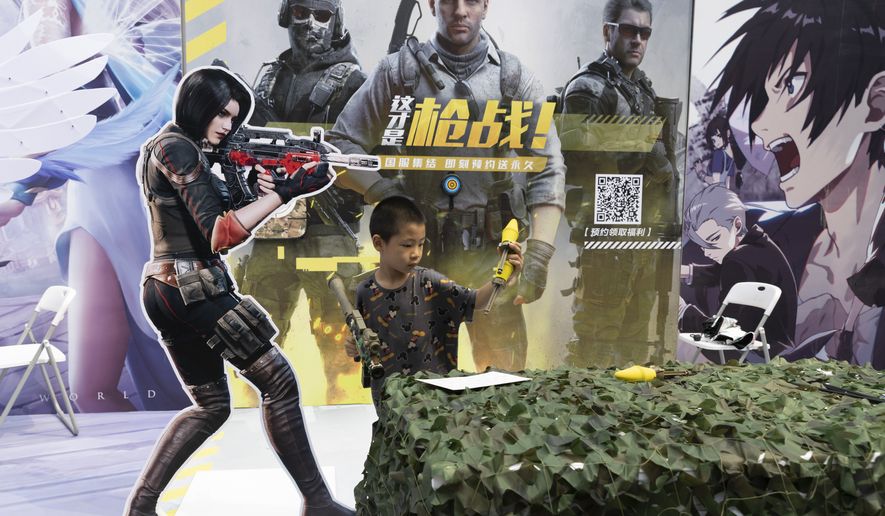China is banning children from playing online games Monday through Thursday and will allow them to play only 3 hours each week over concerns about addiction, according to China’s National Press and Publication Administration.
The new restrictions on children’s video game playing will take effect Wednesday and will force companies to limit children’s access to an hour each day on Friday, Saturday, Sunday and certain holidays.
The companies will be required to implement a real-name-based registration system that links an account to an individual user that China’s regulators will be able to check.
The notice from China’s National Press and Publication Administration on Monday said the “problem of excessive use or even addiction to online games by minors” has become prominent, according to an English-language translation made by Apple.
China’s limitations on the children’s and companies’ freedom have irked people in open societies.
“I’m worried about the impact of online games. But I’m even more worried about this level of state control,” said Yale sociology professor Nicholas Christakis tweeted.
The World Health Organization added that “gaming disorder” in 2018 as an addictive behavior included in its International Classification of Diseases.
To be diagnosed with an addiction to online gaming, someone must exhibit behavior that prioritizes gaming over other activities in a way that impairs other areas of functioning for at least 12 months, WHO said.
China has signaled it would crack down on children having fun via online games in recent weeks. Earlier this month, Chinese state-run media published an article labeling online gaming as “opium,” which prompted shares of Chinese tech giants Tencent and NetEase to plunge as investors feared for the companies’ futures, according to reports.
Amid the cratering stocks, the Chinese state-run publication Economic Information Daily deleted the article and replaced it with one lacking references to opium, according to CNBC.
In the U.S., the federal government has pursued a much different approach to the problem of children overusing video games. The Federal Trade Commission’s website includes a section dedicated to protecting children online that says various time limit systems and internet disabling procedures that parents may choose when evaluating how to govern their children.
The FTC’s website also notes: “Parental controls are a great tool, but they’re no substitute for talking to your kids” about their game-playing habits.
Beyond the federal government’s approach to video game usage, some American schools have taken steps to foster more online gaming.
For example, the NCAA’s Big East athletic conference has a competitive esports program, involving students playing “League of Legends.” One Big East school, Butler University, intends to open a 7,500-square-foot facility dedicated to esports in the fall of 2022, according to the Big East’s website.
While many younger Americans have embraced online games and digital tools during the COVID-19 pandemic, the Chinese Communist Party’s restrictive attitude toward gaming could spill across the world.
Last week, the Cyberspace Administration of China published a proposal to regulate tech companies’ algorithms that would forbid practices that “encourage addiction or high consumption,” per Bloomberg.
Such new rules for tech companies’ algorithms would affect many companies, including TikTok’s China-based owner ByteDance.
Any change in TikTok’s algorithm could be felt globally: The video platform this month topped a list of the world’s most downloaded apps, according to a report by Nikkei Asia using data from App Annie, an app analytics provider headquartered in San Francisco.
Tech companies’ algorithms also are undergoing scrutiny from U.S. policymakers, including federal lawmakers debating whether or how to crack down on tech platforms and regulators concerned about various platforms’ alleged market dominance.
How the Chinese regime seeks to curtail tech companies’ influence will be watched closely by those in the U.S. with similar ambitions of changing tech companies’ behavior.
• Editor’s note: Ryan Lovelace is a graduate of Butler University.
• Ryan Lovelace can be reached at rlovelace@washingtontimes.com.




Please read our comment policy before commenting.